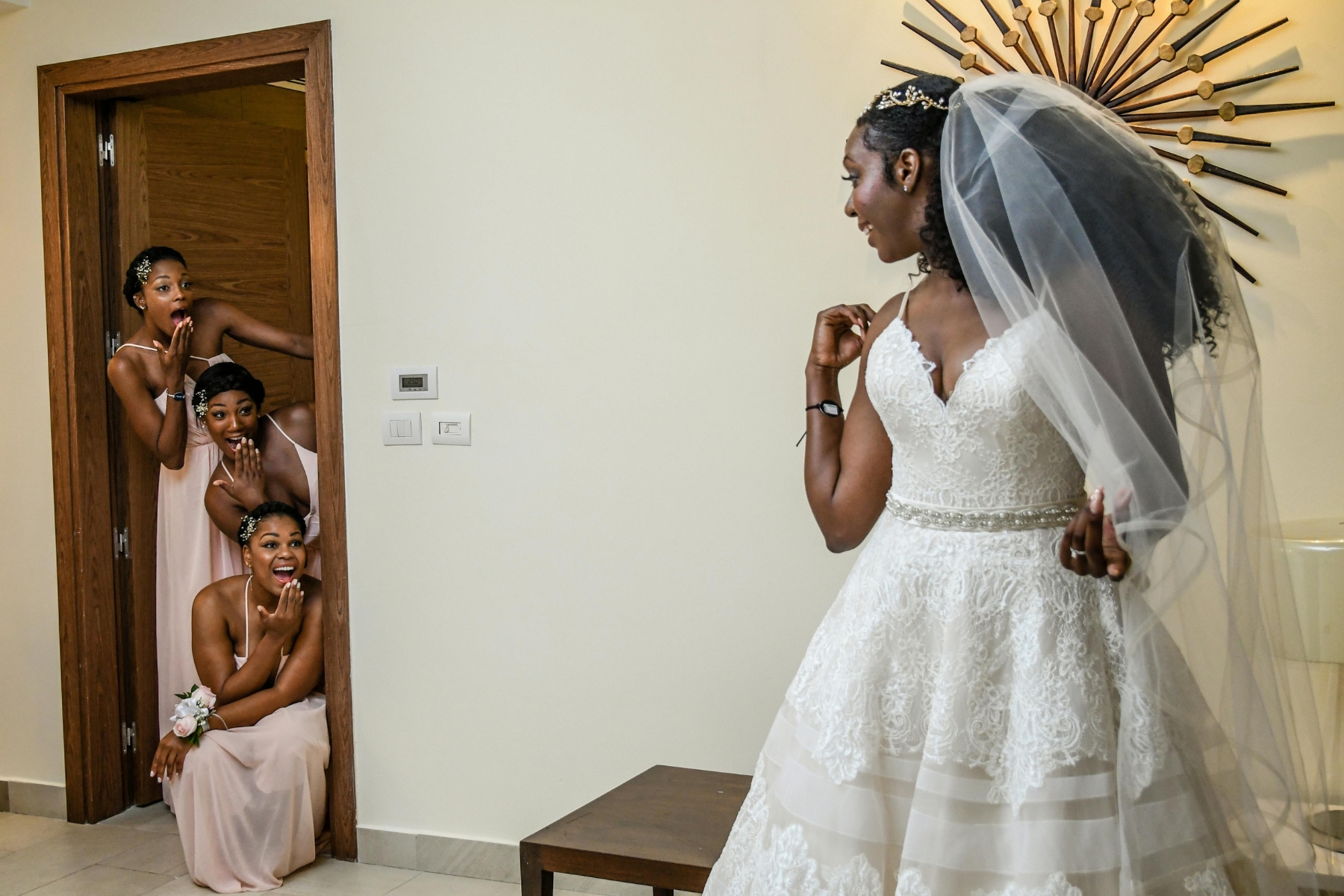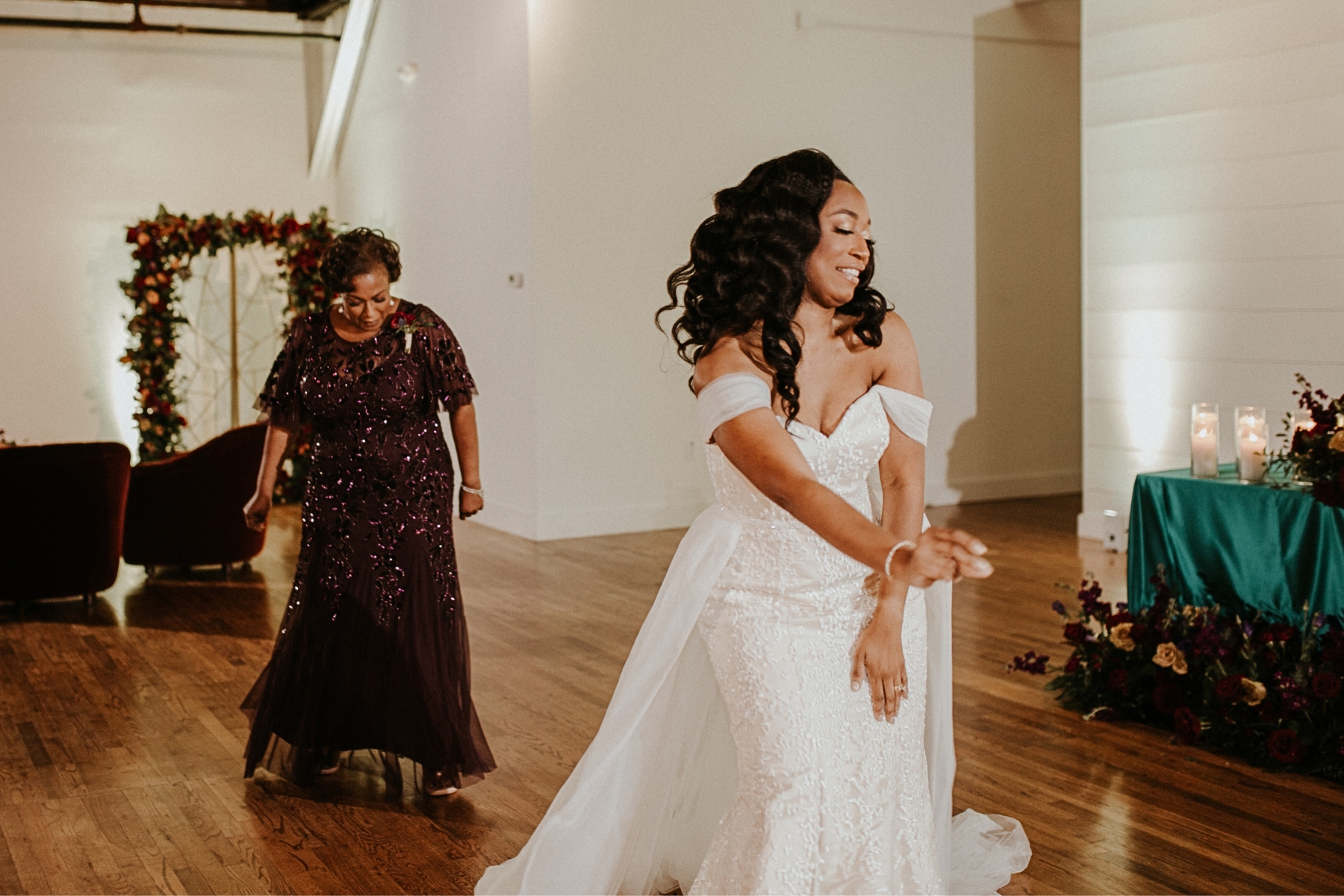When your friend announces their engagement, your first instinct might be to celebrate—but what if your second instinct is something else entirely? Maybe you’re happy for them and a just little heartbroken. Maybe it feels like your life isn’t moving as fast. Maybe her wedding planning is going to be a reminder of what you haven’t accomplished. Or maybe you’re mourning the closeness you used to have before she got chose chose and that took center stage.
Supporting a friend who’s getting married when you’re still waiting for your moment is layered—and that’s okay. In a Hue I Do episode with Dr. Joy Harden Bradford, (licensed psychologist, founder of Therapy for Black Girls, and author of Sisterhood Heals), she reminded us that “two things can be true at the same time.” You can celebrate your friend and still grieve your own unmet milestones.
If you’re dealing with those complicated feelings, here’s how to navigate this emotional tightrope with love, grace, and honesty.
1. Sit With Your Feelings First
Before you express anything to your friend, start by checking in with yourself. What are you feeling—and why?
As Dr. Joy shared, engagement announcements can stir up old rejection wounds. “We are told that it is a prize to be chosen,” she explained. “So what happens when someone in our circle gets engaged, it can often activate some of those early rejection wounds… being told that we’re not whatever enough or being picked last.” Give yourself permission to feel disappointed or uncertain, but don’t rush to say something just yet. Process your thoughts privately—through journaling, therapy, or prayer—before bringing them to your friend.
2. Avoid the Pressure to Perform
We’ve all been there: trying to act excited when our heart isn’t fully in it. But pretending can lead to passive-aggressive behavior that damages your friendship. Dr. Joy warned, “Instead of actually voicing that [hurt], we just try to put on the brave face… and what ends up happening is that we act out in other ways.”
Not every bride will pick up on what you’re silently going through—but they will notice if your energy shifts. Being real with yourself helps you avoid performative support and instead offer sincere, loving presence.
3. If You Need to Share Your Feelings, Share Them Thoughtfully
Eventually, if you’re feeling overwhelmed or distant, you may want to share what’s going on with your friend. That’s okay—but how you do it matters. Remember, she’s in a tender space too.
Dr. Joy emphasized the importance of timing: “The night they get engaged is not the time to do that… maybe waiting a couple of weeks to come back and say, ‘I’m really excited for you, but I’m also really sad for me.’” When you talk, make sure you’re not centering your pain in a way that overshadows her joy. Lead with love. Let her know this moment is about her, and you’re still processing what it means for you—not what it says about her.
As Toniah said during the episode, “We have to be willing to accept what [a friend is] saying and respond in a way that is gentle, soft.” That applies whether you’re the one hearing the truth—or the one sharing it.
4. Offer What You Can, Without Guilt
Maybe you can’t afford the bachelorette trip. Maybe wedding talk is a little overwhelming right now. It’s okay to set boundaries—as long as you’re honest and respectful. Dr. Joy encouraged brides to hold space for reality: “Those things—people not being able to participate in [every event]—is often not an indictment of their love for us… it really may be a budget kind of issue.” Supporting your friend doesn’t mean saying yes to everything. It means showing up when you can, communicating when you can’t, and keeping the lines of love open.
5. Acknowledge the Shift—and Stay Connected
Marriage does change things. You might see each other less. Your conversations might shift. But that doesn’t mean your friendship is over. In fact, the best friendships evolve. Dr. Joy said, “We can have a very fulfilling romantic relationship, but also have lots of space for our girls and not have them as second-rate citizens.” Instead of withdrawing, find small ways to stay present: check in with a meme, send a “thinking of you” text, or ask her how she’s feeling amid the pressure of planning. Because while your feelings matter—so do hers. And she might be struggling in ways you don’t see.
6. Be the Friend You Want to Have
Before you say anything, ask yourself: Would I want to hear this if the roles were reversed?
There’s a difference between vulnerability and projection. It’s one thing to say, “I’m still learning how to deal with my emotions, and I’m so happy for you,” and another to say, “I just don’t understand why it’s happening for you and not for me.” The first builds connection. The second builds resentment.
As Dr. Joy shared, one reason friendships break down during weddings is because “we don’t always have the language and the skills to say, ‘Ouch, that hurt.’” But when you do speak, do it in a way that adds depth to the relationship—not damage.
Final Thoughts
If you’re watching your friend get married while you’re still waiting on your season, know this: you are not alone. You are not petty. And you are not a bad friend. But also remember—your friend is living through one of the most emotional times of her life. Planning a wedding comes with stress, expectations, and major transitions. She might need grace, too.
As Dr. Joy reminded us, “Even things that we are excited about and looking forward to can be incredibly stressful.” The same goes for friendship shifts. So extend compassion in both directions—toward yourself and your friend.
When the love is real, there’s room for your joy and hers to exist side by side. You just have to be intentional about how you show up—for her, and for yourself.




